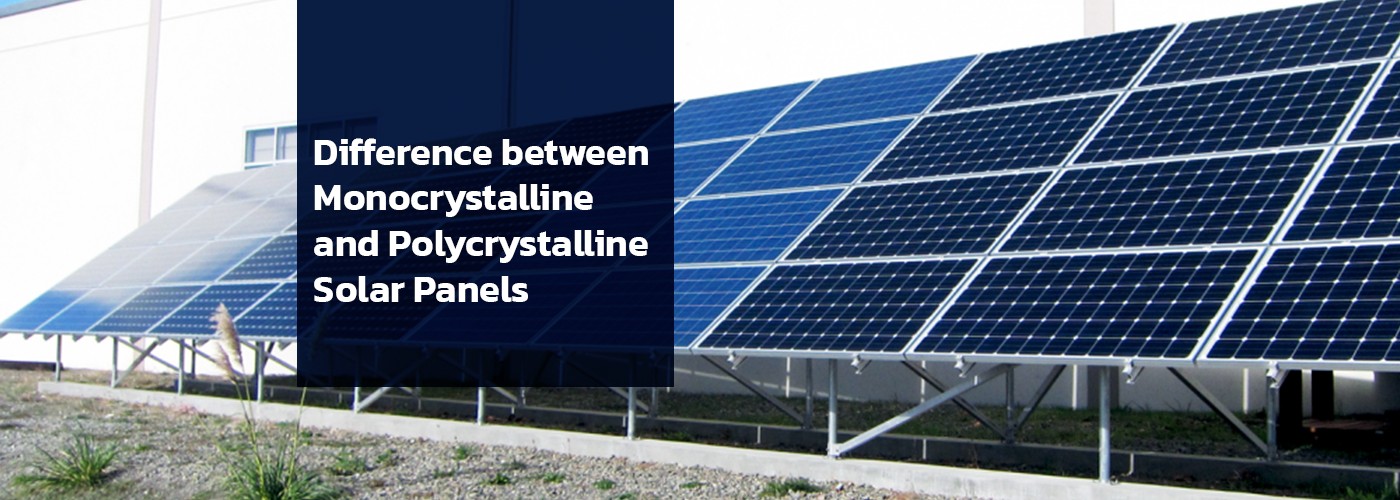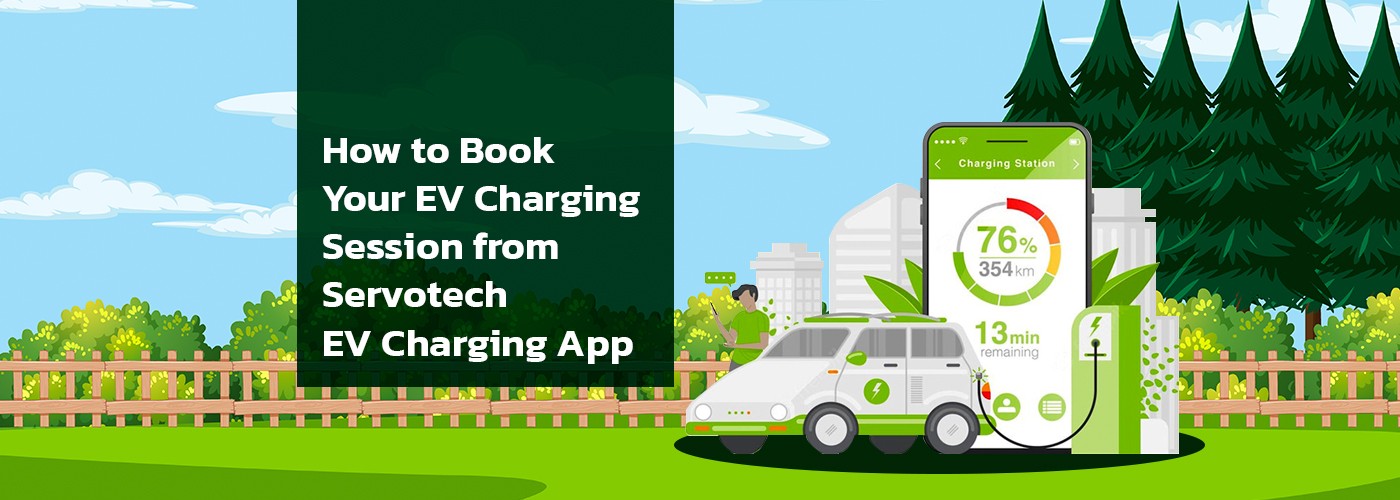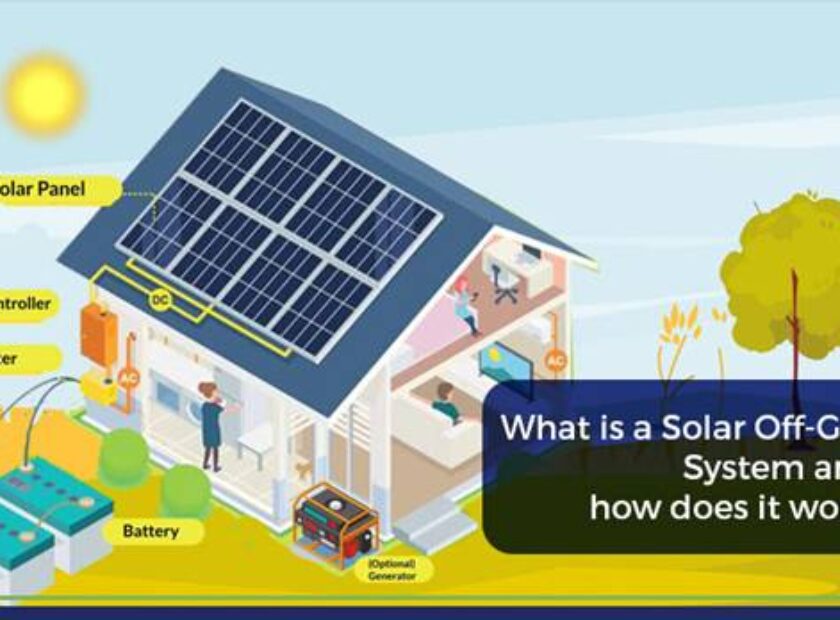Difference Between Monocrystalline and Polycrystalline Solar Panels

Solar panels are devices that convert sunlight into electricity and constitute a crucial component of solar energy systems. When considering solar panels for your home or business, you’ll likely encounter two primary types: monocrystalline and polycrystalline. Each has its unique set of characteristics, advantages, and considerations. In this blog, we’ll explore the key differences between these two popular technologies, helping you make an informed choice for your solar energy needs. Whether you’re a solar enthusiast or simply curious about the technology powering the sun’s energy conversion, read on to uncover the truth of monocrystalline and polycrystalline solar panels.
Monocrystalline Solar Panels
Monocrystalline solar panels are a type of solar panel which are made from a single crystal of silicon which gives them their name ‘monocrystalline’. These panels are also known for their high efficiency and sleek appearance.
Advantages of Monocrystalline Solar Panels
Monocrystalline Solar Panels offer several advantages which makes them a popular choice for many solar energy applications. Here are some of the key advantages of monocrystalline solar panels:
i) High Efficiency
Monocrystalline Panels are known for their high efficiency in converting sunlight into electricity. Their efficiency rate ranges from 16%-23% which makes them an excellent choice for maximizing energy production.
ii) Space Efficiency
Monocrystalline Panels produce more power per square foot, making them space-efficient. This is particularly advantageous for residential installations with limited roof space or for commercial installations where maximizing power output in a confined area is essential.
iii) Longevity
Monocrystalline Panels are durable and have a long lifespan. They can last for 25 years or more with proper maintenance, making them a reliable long-term investment for renewable energy generation.
iv) Appearance
Monocrystalline Panels often have a sleek and uniform black appearance due to their single-crystal structure. This aesthetic quality can be appealing to homeowners and businesses.
v) Energy Output
Monocrystalline Panels consistently produce more energy over their lifespan compared to lower-efficiency panels, which can result in higher energy savings and shorter payback periods for solar installations.
vi) Environmental Impact
These Panels are an environmentally friendly energy source, as they produce electricity without emitting greenhouse gases or other harmful pollutants, contributing to a reduction in carbon footprint.
Polycrystalline Solar Panels
Polycrystalline Solar Panels, also known as multicrystalline solar panels, are another type of solar panel. They are manufactured from multiple small crystals of silicon which gives them their name ‘polycrystalline’ or ‘multicrystalline’.
Advantages of Polycrystalline Solar Panels
Polycrystalline Solar Panels offer several advantages that make them a viable choice for solar energy applications. While they may not be as efficient as monocrystalline panels, they have their own advantages. Here are some key advantages of polycrystalline solar panels:
i) Cost Effective
Polycrystalline Panels are generally more cost-effective to manufacture compared to monocrystalline panels. This can result in a lower cost for solar installations, making them a budget-friendly option for those looking to go solar.
ii) Durable and Long-Lasting
These panels are durable and have a long lifespan, often exceeding 25 years with proper maintenance. This durability ensures that they provide a reliable and long-term source of renewable energy.
iii) Optimal Space Usage
According to the space availability, we can use the different variations of polycrystalline panels. This is specifically beneficial when there is less space available.
iv) Environmental Benefits
Like all solar panels, polycrystalline panels produce electricity without emitting greenhouse gases or other harmful pollutants, contributing to a reduction in the carbon footprint.
v) Temperature Tolerance
They tend to perform well in high-temperature environments. They are less sensitive to temperature variations compared to some other panel types, which can lead to better performance in hot climates.
vi) Variety of Manufacturers
Polycrystalline Panels are widely available from various manufacturers, providing consumers with options to choose from.
Difference between Monocrystalline and Polycrystalline Solar Panels
Here are the main differences between Monocrystalline and Polycrystalline Solar Panels:
1. Crystal Structure
Monocrystalline Panels: They are made from a single crystal structure. They consist of a single, continuous crystal lattice of high-purity silicon.
Polycrystalline Panels: They are made from multiple small silicon crystals. These crystals are not aligned in a single, continuous lattice and have a more random arrangement.
2. Efficiency
Monocrystalline Panels: These panels have efficiency rates of 15-22% or more, making them more efficient at converting sunlight into electricity
Polycrystalline Panels: These panels have low-efficiency rates of 13-16%, making them less efficient in converting sunlight into electricity as compared to monocrystalline panels.
3. Cost
Monocrystalline Panels: They are often more expensive to manufacture, resulting in higher upfront cost
Polycrystalline Panels: They are more cost-effective to produce, making them a budget-friendly option for solar installations.
4. Space Efficiency
Monocrystalline Panels: These panels produce more power per square foot, making them space-efficient. They are a good choice when space is limited.
Polycrystalline Panels: These panels may require more space to generate more amount of electricity than monocrystalline panels due to their lower efficiency.
4. Appearance
Monocrystalline Panels: Monocrystalline Panels often have a sleek and uniform black appearance due to their single-crystal structure. This aesthetic quality can be appealing to homeowners and businesses.
Polycrystalline Panels: Polycrystalline solar panels have a blue or dark blue color. This is due to the anti-reflective coating on the surface, which helps improve the panel’s efficiency by reducing the reflection of sunlight.
5. Performance in Low Light
Monocrystalline Panels: They tend to perform slightly better in low light conditions such as cloudy days, compared to polycrystalline panels.
Polycrystalline Panels: These panels have reasonably low light performance but may not be as efficient as monocrystalline panels in such conditions.
6. Temperature Tolerance
Monocrystalline Panels: They are less sensitive to temperature variations and can handle high temperatures effectively.
Polycrystalline Panels: They can also handle high temperatures but may be slightly less temperature resistant than monocrystalline panels.
Conclusion
Solar panels are essential components of solar energy systems, converting sunlight into electricity. Two primary types of solar panels: monocrystalline and polycrystalline, offer unique advantages. Monocrystalline panels, crafted from a single crystal of silicon, are well known for their high efficiency and sleek appearance. They excel in converting sunlight into electricity, making them ideal for limited spaces. With proper maintenance they can last over 25 years, ensuring a reliable long-term investment. Monocrystalline panels also perform well in high-temperature environments and produce more energy over their lifespan, reducing payback periods. Moreover, they are environmentally friendly, emitting no greenhouse gases. Polycrystalline panels, made from multiple small silicon crystals, are cost-effective and durable. They require less space for the desired energy output which makes them suitable for regions with limited installation space. Polycrystalline panels also contribute to reducing the carbon footprint. The choice between monocrystalline and polycrystalline panels depends on factors like space availability, budget, and environmental conditions. Monocrystalline panels excel in efficiency and longevity while polycrystalline panels are a cost-effective option. One thing remains the same, both contribute to a sustainable energy future.




